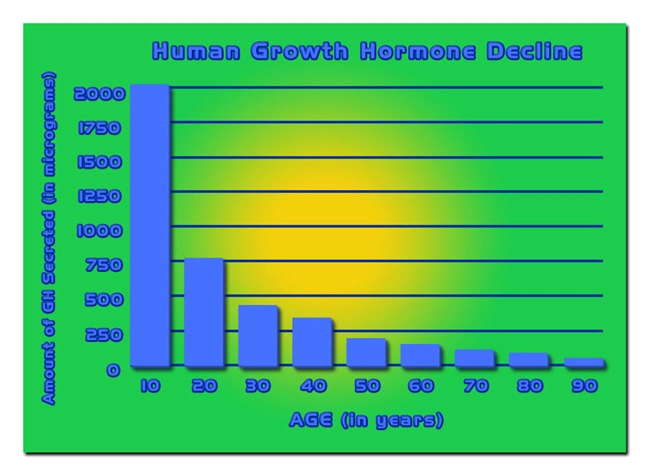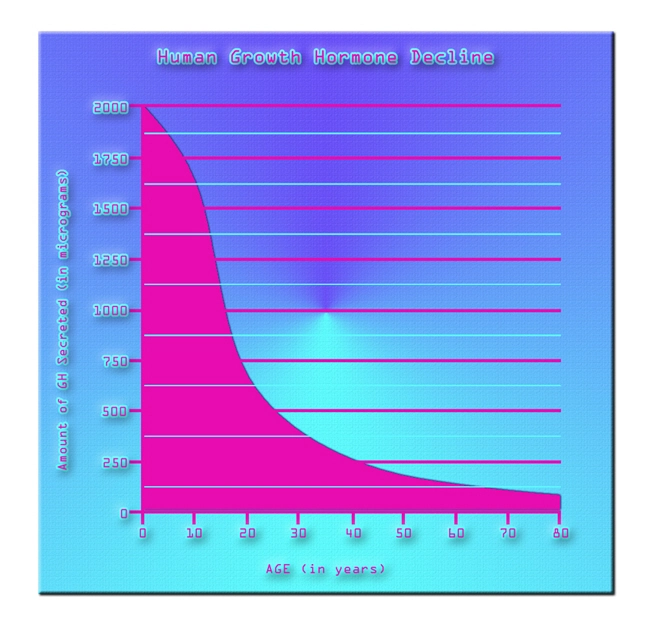
Introduction
Escitalopram, a widely prescribed selective serotonin reuptake inhibitor (SSRI), has been a cornerstone in the treatment of depression and anxiety disorders. However, its use in adolescent populations, particularly males, has sparked significant debate due to concerns over increased suicide risk. This article delves into the critical discussion surrounding escitalopram and its potential impact on suicide risk in adolescent males, aiming to provide a balanced perspective for healthcare professionals and caregivers.
Background on Escitalopram
Escitalopram, marketed under the brand name Lexapro, is an SSRI that works by increasing the levels of serotonin in the brain, a neurotransmitter that plays a key role in mood regulation. It is commonly prescribed for major depressive disorder and generalized anxiety disorder. While effective in many cases, the use of escitalopram in adolescents has been scrutinized due to reports of increased suicidal ideation and behavior.
Clinical Studies and Findings
Several clinical studies have investigated the relationship between escitalopram and suicide risk in adolescents. A notable study published in the *Journal of the American Academy of Child and Adolescent Psychiatry* found that adolescents treated with SSRIs, including escitalopram, had a higher incidence of suicidal thoughts compared to those on placebo. However, the absolute risk remained low, and the benefits of treatment often outweighed the risks for many patients.
Another study conducted by the *National Institute of Mental Health* highlighted that while there was an increased risk of suicidal ideation in the initial weeks of treatment, this risk diminished over time. This suggests that close monitoring during the early stages of treatment is crucial.
Mechanisms of Action and Suicide Risk
The exact mechanisms by which escitalopram might increase suicide risk in adolescents are not fully understood. Some theories suggest that the initial increase in serotonin levels can lead to agitation or akathisia, a state of restlessness that could contribute to suicidal thoughts. Additionally, the underlying psychiatric condition being treated may itself be a significant risk factor for suicide, complicating the interpretation of data.
Regulatory Perspectives
In response to these concerns, regulatory bodies such as the U.S. Food and Drug Administration (FDA) have issued black box warnings for SSRIs, including escitalopram, highlighting the increased risk of suicidal thinking and behavior in children, adolescents, and young adults. These warnings emphasize the importance of monitoring patients closely, especially during the initial stages of treatment and when doses are adjusted.
Clinical Recommendations
For healthcare providers treating adolescent males with escitalopram, several recommendations can be made to mitigate the risk of suicide. Firstly, a thorough assessment of the patient's mental health history and current state is essential. Secondly, initiating treatment at a low dose and gradually increasing it can help minimize the risk of adverse effects. Thirdly, regular follow-up appointments and open communication with the patient and their family are crucial for monitoring any changes in mood or behavior.
Patient and Family Education
Educating patients and their families about the potential risks and benefits of escitalopram is vital. They should be informed about the signs of suicidal ideation and encouraged to report any concerning symptoms immediately. Support systems, including therapy and counseling, should be integrated into the treatment plan to provide comprehensive care.
Conclusion
The relationship between escitalopram and suicide risk in adolescent males is complex and multifaceted. While there is evidence suggesting an increased risk of suicidal thoughts, particularly in the early stages of treatment, the overall benefits of escitalopram in managing depression and anxiety cannot be overlooked. By adhering to clinical guidelines, closely monitoring patients, and maintaining open communication, healthcare providers can help ensure the safe and effective use of escitalopram in this vulnerable population.
Contact Us Today For A Free Consultation
Dear Patient,
Once you have completing the above contact form, for security purposes and confirmation, please confirm your information by calling us.
Please call now: 1-800-380-5339.
Welcoming You To Our Clinic, Professor Tom Henderson.

- Exploring the Relationship Between Escitalopram and Weight Changes in American Males [Last Updated On: February 16th, 2025] [Originally Added On: February 16th, 2025]
- Exploring the Therapeutic Potential of Escitalopram for Panic Disorders in American Males [Last Updated On: February 24th, 2025] [Originally Added On: February 24th, 2025]
- Unveiling the Mechanism: Understanding the Role of Escitalopram in Altering Serotonin Levels in the Brain [Last Updated On: March 2nd, 2025] [Originally Added On: March 2nd, 2025]
- Exploring the Cognitive Effects of Escitalopram: Impacts on Memory, Attention, and Executive Function in Mood Disorders [Last Updated On: March 3rd, 2025] [Originally Added On: March 3rd, 2025]
- Escitalopram Use During Pregnancy: Benefits and Risks Explored [Last Updated On: March 4th, 2025] [Originally Added On: March 4th, 2025]
- Understanding Escitalopram: Experiences of American Males with Depression and Anxiety Treatment [Last Updated On: March 5th, 2025] [Originally Added On: March 5th, 2025]
- Understanding Escitalopram's Role in Treating Adolescent Depression and Anxiety [Last Updated On: March 6th, 2025] [Originally Added On: March 6th, 2025]
- The Pharmacological Profile of Escitalopram: A Potent SSRI for Depression and Anxiety [Last Updated On: March 7th, 2025] [Originally Added On: March 7th, 2025]
- Escitalopram's Efficacy in Treating OCD Among American Males: Benefits and Considerations [Last Updated On: March 8th, 2025] [Originally Added On: March 8th, 2025]
- Safely Withdrawing from Escitalopram: A Guide for American Men on SSRI Discontinuation [Last Updated On: March 8th, 2025] [Originally Added On: March 8th, 2025]
- Escitalopram: Efficacy and Side Effects in Antidepressant Therapy for American Men [Last Updated On: March 9th, 2025] [Originally Added On: March 9th, 2025]
- Exploring Escitalopram: Key Drug Interactions to Avoid for American Males [Last Updated On: March 12th, 2025] [Originally Added On: March 12th, 2025]
- Exploring the Impact of Escitalopram on Mental Health in American Males: A Nursing Perspective [Last Updated On: March 13th, 2025] [Originally Added On: March 13th, 2025]
- Exploring the Safety of Escitalopram in Elderly American Males: Essential Precautions [Last Updated On: March 15th, 2025] [Originally Added On: March 15th, 2025]
- Escitalopram Pharmacokinetics in American Males: Optimizing Treatment for Depression and Anxiety [Last Updated On: March 18th, 2025] [Originally Added On: March 18th, 2025]
- Escitalopram's Impact on American Males: Case Studies in Mental Health Improvement [Last Updated On: March 18th, 2025] [Originally Added On: March 18th, 2025]
- Escitalopram Efficacy in Treating PTSD Among American Males: Benefits and Considerations [Last Updated On: March 18th, 2025] [Originally Added On: March 18th, 2025]
- Escitalopram's Role in Treating Social Phobia in American Males: Efficacy and Considerations [Last Updated On: March 18th, 2025] [Originally Added On: March 18th, 2025]
- Escitalopram Overdose: Symptoms, Actions, and Prevention Strategies [Last Updated On: March 18th, 2025] [Originally Added On: March 18th, 2025]
- Strategies to Boost Escitalopram Adherence in American Males: Education, Technology, and Support [Last Updated On: March 18th, 2025] [Originally Added On: March 18th, 2025]
- Escitalopram: Mechanism, Efficacy, and Safety for American Males with Depression and Anxiety [Last Updated On: March 19th, 2025] [Originally Added On: March 19th, 2025]
- Escitalopram: American Men's Experiences with Depression and Anxiety Treatment [Last Updated On: March 20th, 2025] [Originally Added On: March 20th, 2025]
- Escitalopram's Impact on Sleep: Insights for American Male Patients [Last Updated On: March 21st, 2025] [Originally Added On: March 21st, 2025]
- Escitalopram's Journey: From Lab to Lifeline for American Males' Mental Health [Last Updated On: March 21st, 2025] [Originally Added On: March 21st, 2025]
- Monitoring Liver Function in American Males on Escitalopram: Essential Guidelines and Practices [Last Updated On: March 21st, 2025] [Originally Added On: March 21st, 2025]
- Escitalopram's Minimal Impact on Blood Pressure in American Males: A 12-Week Study [Last Updated On: March 21st, 2025] [Originally Added On: March 21st, 2025]
- CBT and Escitalopram: A Synergistic Approach to Men's Mental Health in America [Last Updated On: March 22nd, 2025] [Originally Added On: March 22nd, 2025]
- Guide to Transitioning from Fluoxetine to Escitalopram for American Men [Last Updated On: March 22nd, 2025] [Originally Added On: March 22nd, 2025]
- Escitalopram-Induced Mania: Risks, Symptoms, and Management in American Males [Last Updated On: March 23rd, 2025] [Originally Added On: March 23rd, 2025]
- Escitalopram's Impact on Co-morbid Physical Disorders in American Males: Benefits and Risks [Last Updated On: March 23rd, 2025] [Originally Added On: March 23rd, 2025]
- Escitalopram: A Promising Treatment for Depression in American Men During Andropause [Last Updated On: March 23rd, 2025] [Originally Added On: March 23rd, 2025]
- Escitalopram Use and Interactions for American Males: A Comprehensive Guide [Last Updated On: March 23rd, 2025] [Originally Added On: March 23rd, 2025]
- Escitalopram: Enhancing Mental Health in American Men - Uses, Effects, and Considerations [Last Updated On: March 23rd, 2025] [Originally Added On: March 23rd, 2025]
- Escitalopram's Role in Enhancing Palliative Care for American Males [Last Updated On: March 24th, 2025] [Originally Added On: March 24th, 2025]
- Escitalopram: A Key Treatment for Major Depressive Disorder in American Males [Last Updated On: March 24th, 2025] [Originally Added On: March 24th, 2025]
- Escitalopram: Enhancing Serotonin and Neuroplasticity in American Males' Mental Health Treatment [Last Updated On: March 24th, 2025] [Originally Added On: March 24th, 2025]
- Escitalopram: Effective Treatment for Body Dysmorphic Disorder in American Males [Last Updated On: March 24th, 2025] [Originally Added On: March 24th, 2025]
- Escitalopram's Impact on Anxiety in American Males: Efficacy and Considerations [Last Updated On: March 24th, 2025] [Originally Added On: March 24th, 2025]
- Escitalopram: Effective GAD Treatment for American Males in Comprehensive Care [Last Updated On: March 24th, 2025] [Originally Added On: March 24th, 2025]
- Escitalopram Safety and Liver Disease in American Males: Pharmacokinetics and Clinical Guidelines [Last Updated On: March 25th, 2025] [Originally Added On: March 25th, 2025]
- Escitalopram: Key Insights for Managing Depression and Anxiety in American Males [Last Updated On: March 25th, 2025] [Originally Added On: March 25th, 2025]
- Escitalopram: A Promising Treatment for Seasonal Affective Disorder in American Men [Last Updated On: March 25th, 2025] [Originally Added On: March 25th, 2025]
- Escitalopram Interactions with Antidepressants: Risks and Management in American Males [Last Updated On: March 25th, 2025] [Originally Added On: March 25th, 2025]
- Escitalopram's Future in U.S. Psychiatry: Innovations for American Males' Mental Health [Last Updated On: March 25th, 2025] [Originally Added On: March 25th, 2025]
- Escitalopram in Geriatric Psychiatry: Efficacy, Safety, and Dosing for Older American Males [Last Updated On: March 25th, 2025] [Originally Added On: March 25th, 2025]
- Escitalopram in Pediatric Males: Safety, Side Effects, and Monitoring Guidelines [Last Updated On: March 26th, 2025] [Originally Added On: March 26th, 2025]
- Escitalopram: Managing Sexual Side Effects in American Males [Last Updated On: March 26th, 2025] [Originally Added On: March 26th, 2025]
- Escitalopram's Role in Managing MDD Among American Males: Efficacy and Considerations [Last Updated On: March 26th, 2025] [Originally Added On: March 26th, 2025]
- Escitalopram Use and Serotonin Syndrome Risks in American Males: A Comprehensive Guide [Last Updated On: March 26th, 2025] [Originally Added On: March 26th, 2025]
- Escitalopram's Impact on BPD Symptoms in American Males: A Pilot Study [Last Updated On: March 26th, 2025] [Originally Added On: March 26th, 2025]
- Escitalopram: Enhancing Cognitive Function in American Men [Last Updated On: March 26th, 2025] [Originally Added On: March 26th, 2025]
- Escitalopram's Long-Term Effects on American Males: Benefits, Risks, and Alternatives [Last Updated On: March 26th, 2025] [Originally Added On: March 26th, 2025]
- Escitalopram: A Journey to Recovery from Depression in American Men [Last Updated On: March 27th, 2025] [Originally Added On: March 27th, 2025]
- Escitalopram's Efficacy in Treating Post-Stroke Depression in American Males: A Review [Last Updated On: March 27th, 2025] [Originally Added On: March 27th, 2025]
- Escitalopram as Adjunctive Therapy for Bipolar Disorder in American Males [Last Updated On: March 27th, 2025] [Originally Added On: March 27th, 2025]
- Escitalopram and Alcohol: Risks and Guidelines for American Males [Last Updated On: March 27th, 2025] [Originally Added On: March 27th, 2025]
- Escitalopram's Role in Treating Eating Disorders Among American Males [Last Updated On: March 27th, 2025] [Originally Added On: March 27th, 2025]
- Escitalopram: A Promising Therapy for Neuropathic Pain in American Males [Last Updated On: March 27th, 2025] [Originally Added On: March 27th, 2025]
- Escitalopram's Efficacy in Treating Agoraphobia Among American Males: A Comprehensive Review [Last Updated On: March 28th, 2025] [Originally Added On: March 28th, 2025]
- Escitalopram: Managing Chronic Depression in American Males - Efficacy and Considerations [Last Updated On: March 28th, 2025] [Originally Added On: March 28th, 2025]
- Escitalopram's Impact on Heart Health in American Males: Benefits and Risks [Last Updated On: March 29th, 2025] [Originally Added On: March 29th, 2025]
- Escitalopram: Key Insights for American Males on Depression and Anxiety Treatment [Last Updated On: March 29th, 2025] [Originally Added On: March 29th, 2025]
- Escitalopram's Impact on Cognitive Skills in American Males: A Medical Examination [Last Updated On: March 29th, 2025] [Originally Added On: March 29th, 2025]
- Escitalopram: Enhancing Serotonin for Mood Disorder Treatment in American Males [Last Updated On: March 30th, 2025] [Originally Added On: March 30th, 2025]
- Escitalopram's Impact on Depression in American Male Adolescents: Efficacy and Safety [Last Updated On: March 30th, 2025] [Originally Added On: March 30th, 2025]
- Escitalopram's Efficacy and Management in Treating Dysthymia for American Males [Last Updated On: March 31st, 2025] [Originally Added On: March 31st, 2025]
- Escitalopram's Impact on Autonomic Nervous System in American Males: Benefits and Side Effects [Last Updated On: April 1st, 2025] [Originally Added On: April 1st, 2025]
- Optimizing Escitalopram Dose Titration for American Males: A Medical Perspective [Last Updated On: April 1st, 2025] [Originally Added On: April 1st, 2025]
- Escitalopram's Role in Managing PMDD: Efficacy, Mechanism, and Considerations for American Males [Last Updated On: April 2nd, 2025] [Originally Added On: April 2nd, 2025]
- Escitalopram's Potential in Treating Postpartum Depression in American Males [Last Updated On: April 5th, 2025] [Originally Added On: April 5th, 2025]
- Escitalopram Enhances Quality of Life in American Men with Depression: A Systematic Review [Last Updated On: April 6th, 2025] [Originally Added On: April 6th, 2025]
- Switching from Citalopram to Escitalopram: A Guide for American Males [Last Updated On: April 9th, 2025] [Originally Added On: April 9th, 2025]
- Managing Escitalopram Withdrawal: Strategies for American Males [Last Updated On: April 10th, 2025] [Originally Added On: April 10th, 2025]









